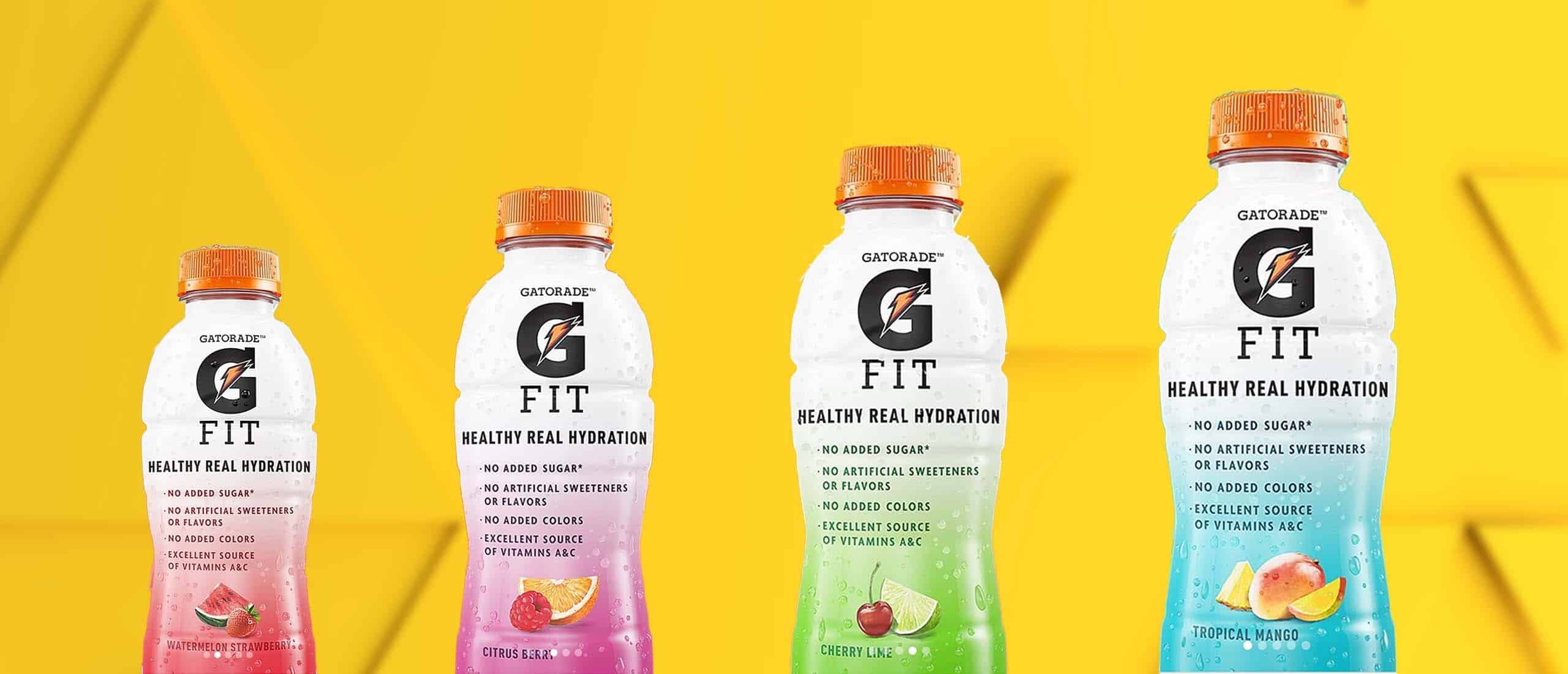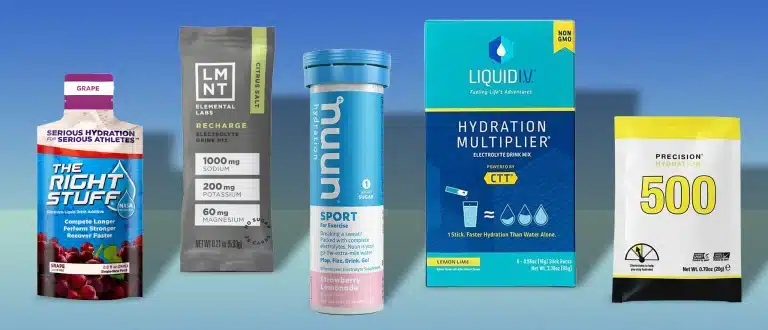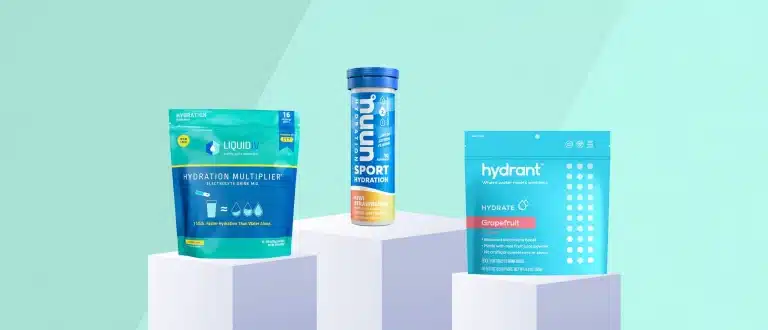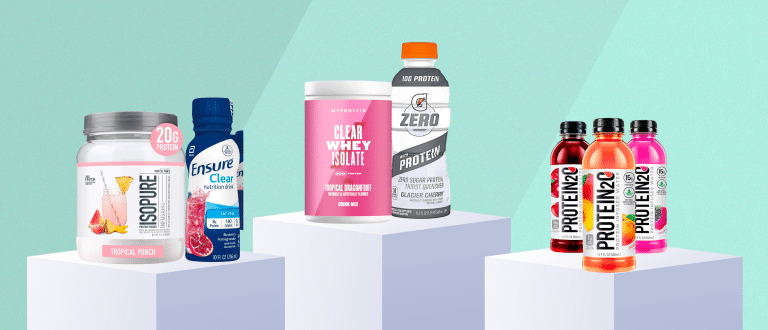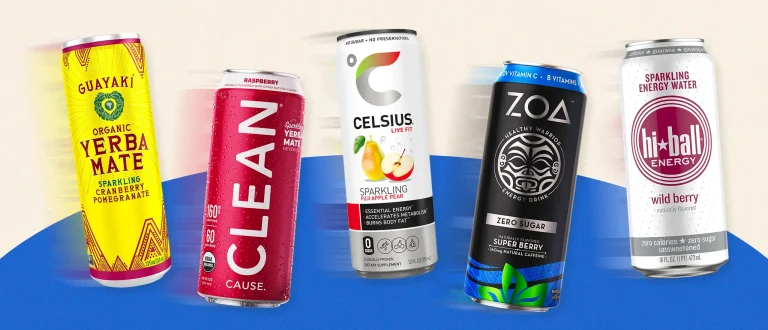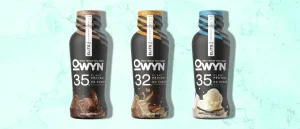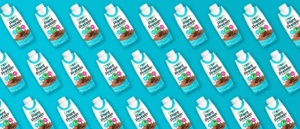Gatorade Fit Claims to Be Healthy, But Is It? An R.D. Explains
Our product picks are editor-tested, expert-approved. We may earn a commission through links on our site.
I grew up chugging lemon-lime Gatorade on the soccer field between sweaty games and grueling practices. That syrupy, ice-cold sip carries some sweet nostalgia. But since my workouts are significantly shorter these days, I find myself reaching for lighter options with less sugar, artificial color, and calories.
After Gatorade realized many “nutritionally discerning athletes” felt the same way, they created Gatorade Fit, which touts “healthy real hydration” on the label. But do the nutrition facts and ingredients stand up? And, more importantly, how does it taste? I tapped a registered dietitian and put Gatorade Fit to the taste test to find out.
Why You Should Trust Us
Hone Health is a team of health-obsessed journalists, editors, fitness junkies, medical reviewers, and product testers. As a former collegiate athlete, I’ve spent years fueling intense workouts with electrolytes. As an editor, I’ve spent years testing, researching, and reviewing products in the fitness and nutrition space, including electrolyte powders and supplements. Before writing this story, I tapped registered dietitian, Sydney Greene, MS, RD, to get the full scoop on Gatorade Fit’s ingredients, and nutrition facts.
What Is Gatorade Fit?
Gatorade Fit is an electrolyte sports drink with no added sugar, artificial sweeteners or flavors, or added colors, and 100 percent DV of vitamin C and A. It’s available in five delightfully fresh flavors: Tropical Mango, Watermelon Strawberry, Citrus Berry, Cherry Lime, and Blackberry Raspberry.
You can find the drink in both 16.8- and 28-ounce bottles—keep in mind the former is one serving. In one 16.8-ounce bottle, you’ll find just 1g of sugar—which comes from the 4% watermelon juice, contributing to its sweet flavor, and unique blend of natural electrolytes.
Gatorade Fit Ingredients
Naturally sourced electrolytes
The key electrolytes in Gatorade Fit are naturally sourced from watermelon and sea salt, which help to replace what is lost in sweat while promoting fluid balance. While the source of electrolytes differs from the original, it should be noted there’s no difference in electrolyte potency between Gatorade and Gatorade Fit.
Natural flavors
Natural flavor is one of the top ingredients on the Gatorade Fit bottle. According to the FDA, natural flavors come directly from plant or animal sources, as opposed to artificial flavors which are originally sourced from chemicals. However, since the FDA hasn’t defined the term, it can be used to describe almost any type of food (1). This doesn’t mean that natural flavors are always unhealthy, but natural flavors may be more processed than you think.
Purified stevia extract
Stevia is considered a safe, low-calorie sweetener. The appeal: a sugar replacement with almost no calories. If you’re trying to lose weight, stevia may be of interest. However, more research is needed to provide conclusive evidence on its long-term effect on weight management, diabetes, and other health issues (2). “Some individuals may experience unwanted gastrointestinal effects from stevia such as gas, bloating ,or loose stool,” warns registered dietitian Sydney Greene, MS, RD.
Synthetic vitamins
The vitamins found in Gatorade Fit are synthetic: Ascorbic acid (vitamin C), niacinamide (vitamin B3), beta carotene (vitamin A), calcium pantothenate (vitamin B5), and pyridoxine hydrochloride (vitamin B6).
Synthetic vitamins aren’t uncommon in foods and supplements. Unfortunately, they aren’t always as bioavailable—or as easy for your body to absorb—in an isolated micronutrient profile such as Gatorade Fit (3).
For example, vitamin A is a fat-soluble vitamin, meaning it needs to be paired with fat to be absorbed. The absence of fat in Gatorade Fit renders the inclusion of vitamin A useless unless you pair your drink with a healthy, fatty snack like a handful of almonds.
No food dyes
Another win for Gatorade Fit is the absence of artificial colors and flavors. Some standard Gatorade options are free from artificial colors like Glacier Cherry (no added color) and Berry (typically colored with vegetable concentrates). But, as a whole, Gatorade is swarming with artificial food dyes which many studies have confirmed are bad for us. “Some research suggests that food dyes can have negative effects on children’s attention and activity levels (4),” says Greene.
Does Gatorade Fit have Aspartame in It?
Nope. Gatorade Fit is aspartame-free and sweetened with purified stevia leaf extract, a healthier alternative to aspartame. The original Gatorade also steers clear of aspartame and instead uses both sucrose (table sugar) and dextrose to achieve its sweet flavor.
Is Gatorade Fit Good For You?
For the most part, yes. With only 1g of sugar, 10 calories, no added sugar, no artificial sweeteners or flavors, no added colors, and 100 percent daily value of vitamin C and A, Gatorade Fit provides a significant upgrade to good ol’ Gatorade.
In recent years, the original Gatorade has been exposed as being only slightly healthier than your average can of soda. While some athletes may benefit from the high amounts of sugar in Gatorade, the majority of people who enjoy sports drinks aren’t as physically active as they should be (5). The additional sugar and calories could contribute to weight gain rather than supporting recovery post-sport which is what the drink is intended to do.
Gatorade Fit offers a welcome alternative for post-workout hydration with significantly less sugar, and the same amount of electrolytes as a standard bottle of Gatorade.
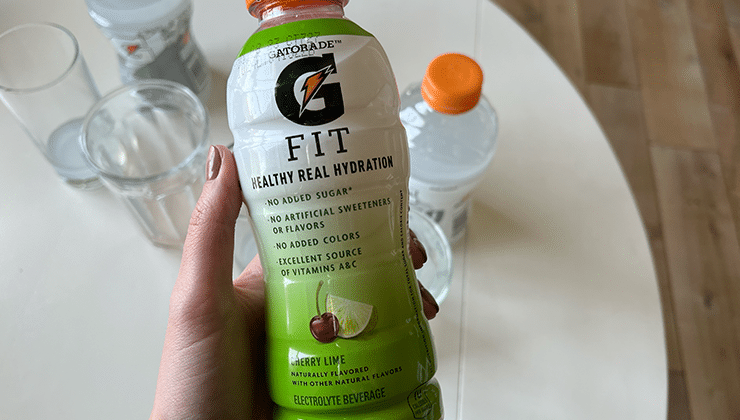
What’s the Difference Between Regular Gatorade and Gatorade Fit?
Each Gatorade Fit has just 10 to 15 calories per 16.9-fluid ounce serving depending on the flavor, in comparison to a whopping 110 calories per 16.9-fluid ounces in the original. The original has 32 grams of sugar, while Gatorade Fit only has 1 gram.
Gatorades, Compared
| Gatorade Type | Sugar | Calories | Sweetening Agent |
| Gatorade | 32 grams | 110 | Sugar, dextrose |
| Gatorade Fit | 1 gram | 10 | Purified Stevia Leaf Extract |
| Gatorade Zero | 0 grams | 0 | Sucralose, Acesulfame Potassium |
| Gatorlyte | 12 grams | 60 | Sugar, Purified Stevia Leaf Extract |
How Does Gatorade Fit Taste Compared to Other Gatorades?
I put Gatorade, Gatorade Fit, Gatorlyte, and Gatorade Zero to the taste test. Here’s how they compare:
- Gatorade: Nothing hits better than the original
- Gatorade Fit: Light, refreshing, subtlety sweet
- Gatorlyte: Too salty to be enjoyable
- Gatorade Zero: Way too sugary. I was convinced this was the OG Gatorade
Does Gatorade Fit Taste Like Gatorade?
No. Gatorade Fit doesn’t taste exactly like Gatorade. Is it reminiscent? Yes. Gatorade Fit is a fresh take on the classic, that isn’t nearly as sweet. I was surprised to find Gatorade Fit wasn’t bad. I actually enjoyed it.
I forgot just how heavy and syrupy Gatorade tasted (it contains nearly as much sugar as a can of Coke). While I still rank the original Gatorade number one in flavor, Gatorade Fit was light and refreshing in comparison—a drink I could down without feeling sugared out.
In theory, a healthier electrolyte drink is enticing. While I had my doubts about the stevia (bleh), I will say the company has gone light on its addition to Gatorade Fit. The result is a slightly sweet taste, without the ickiness you get from most stevia-based drinks. Still, even in small amounts, stevia does linger on the tongue, and Gatorade Fit is no exception.
Despite a few negative points for a modest stevia taste, Gatorade Fit is a great-tasting option that I plan to add to my hydration arsenal.
The Bottom Line
In comparison to Gatorade, Gatorade Fit presents a definitively healthier option for athletes and weekend warriors alike. It contains less sugar, no artificial colors, and fewer calories than the original. Plus, Gatorade Fit may provide a boost of vitamins, and it doesn’t taste half bad.
References
1. Goodman, M. et al. (2017). The “Natural” vs Natural Flavors” Conflict in Food Labeling: A Regulatory Viewpoint.
2. Azad, M. et al. (2017). Nonnutritive sweeteners and Cardiometabolic Health: A Systematic Review and Meta-Analysis of Randomized Controlled Trials and Prospective Cohort Studies.
3. Yetley, E. et al. (2007). Multivitamin and Multimineral Dietary Supplements: Definitions, Characterization, Bioavailability, and Drug Interactions.
4. Miller, M. et al. (2022). Potential Impacts of Synthetic Food Dyes on Activity and Attention in Children: A Review of the Human and Animal Evidence.
5. Pirotin, S. et al. (2014). Looking Beyond the Marketing Claims of New Beverages.



